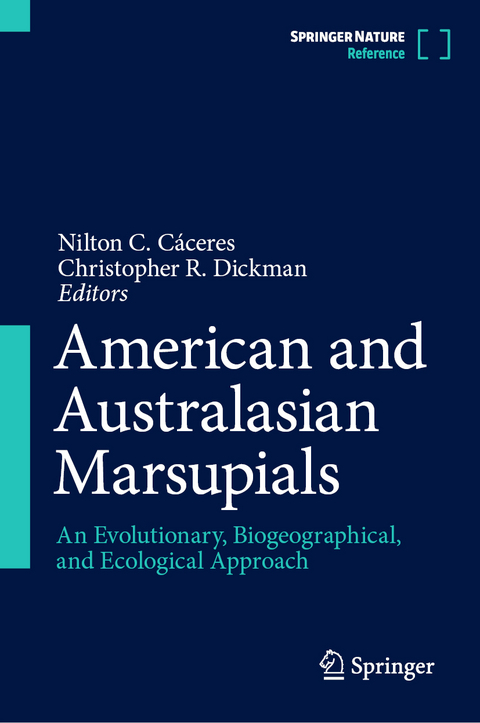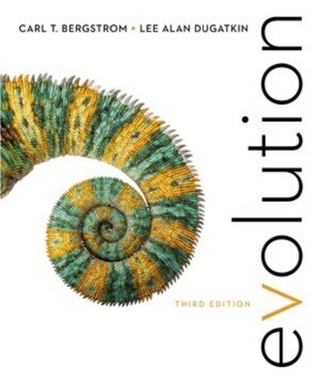
American and Australasian Marsupials
Springer International Publishing
978-3-031-08418-8 (ISBN)
Nilton Caceres has more than 20 years of research experience and is currently a Full Professor at the Santa Maria Federal University in Brazil. In 2012-2013 he was a postdoctoral fellow at the Pasquale Raia Lab in Naples, Italy. He has since established international collaborations with respected international researchers, such Dr. Carlo Meloro (England), Dr. Andres Baselga (Spain), Francois Catzeflis (France), and Gregory Wilson (USA). His field of research ranges from population ecology to evolutionary biology, focusing mainly on New World mammals, particularly marsupials. Christopher R. Dickman's work focuses mostly on the ecology of mammals and on a range of projects in applied conservation and management. Chris is a Professor in Ecology (personal chair) at The University of Sydney and a Fellow of both the Australian Academy of Science and the Royal Zoological Society of New South Wales. He has written more than 500 journal articles and book chapters, as well as several monographs on marsupials including the award-winning A Fragile Balance: The Extraordinary Story of Australian Marsupials and Secret Lives of Carnivorous Marsupials (with Andrew Baker); he is also co-editor of Marsupials and Predators with Pouches: The Biology of Carnivorous Marsupials. He is the recipient of several national and international awards, including the Troughton Medal from the Australian Mammal Society and the C. Hart Merriam award from the American Society of Mammalogists.
Introduction.- Section I. Evolution and Diversification: Checklist of New World Marsupials.- Taxonomy and Diversity of Living New World Marsupials .- Cenozoic Metatherian Evolution in the Americas.- Paleogene Metatherians from the Itaboraí Basin: Diversity, Affinities, and Paleobiogegraphic Context.-Postweaning Skull Growth in Living American and Australasian Marsupials: Allometry and Evolution.- Evolutionary Diversification of Skull Morphology in Faunivorous Marsupials: A Comparison between the American and the Australasian Lineages.- Morphology, Form and Function in Didelphid Marsupials.- Hair Microstructure Diversification in Neotropical Marsupials: the Roles of Phylogenetic Signal and Adaptation.- Patterns of Phenotypic Evolution and Diversification in the Short-Tailed Opossum Genus Monodelphis.- Section II. Biogeography: From Bergmann’s to Cope’s rules: An Overview on the Trait Variation in New World Marsupials.- A Macroevolutionary Approach to Study the Age-Area Relationships for the New World Marsupials.- An Overview of Species Richness and Beta Diversity Patterns of New World Marsupials.- Diversification of the Didelphid Marsupials of South America..- Diversity and Endemism of Marsupials in the Guiana Region (northeastern Amazonia).- Diversity, Endemism, and Biogeographical History of Marsupials from the South American “Dry Diagonal”.- Spatial Patterns and Drivers of Species Richness and Endemism of Marsupials in the Atlantic Forest in eastern South America.- Section III. Ecology: Population Dynamics of Neotropical Marsupials.- More than Semelparity or Iteroparity: Diversity of Reproductive Strategies in New World Marsupials.- Movement Patterns, Habitat Selection, and Home Range of New World Marsupials.- Positional Behavior and Locomotor Performance of New World Marsupials: Links with Habitat and Substrate Use.- Food Habits of New World Marsupials.- Feeding Patterns of Marsupials in a Neotropical Savanna: Intra- and Interspecific Diet Variation and Seasonal Patterns.- Activity Patterns of New World Marsupials.- IV. Conservation.- Conservation Biogeography of Living New World marsupials (Didelphimorphia, Microbiotheria, and Paucituberculata)..- Effects of Habitat Loss and Fragmentation on Assemblages, Populations, and Individuals of New World marsupials.-. Effects of Habitat Loss and Fragmentation per se in Didelphid Marsupials of the Atlantic Forest.- Left Out of the Pouch: Marsupials and the Coverage Provided by Protected Areas in Brazil.-. Unraveling Human-Wildlife Interactions in Urban Areas: the Case of Didelphis aurita in a Large Metropolis.- Habitat Loss, Fragmentation, and Transformation are threatening a Relict Marsupial from Southern South American Temperate Rainforests.- Concluding Remarks.
| Erscheint lt. Verlag | 1.7.2023 |
|---|---|
| Zusatzinfo | XL, 1602 p. 266 illus., 177 illus. in color. In 2 volumes, not available separately. |
| Verlagsort | Cham |
| Sprache | englisch |
| Maße | 155 x 235 mm |
| Themenwelt | Naturwissenschaften ► Biologie ► Evolution |
| Naturwissenschaften ► Biologie ► Ökologie / Naturschutz | |
| Naturwissenschaften ► Biologie ► Zoologie | |
| Schlagworte | Alpha diversity • Amazonian mammals • american marsupials • Atlantic forest mammals • australian marsupials • beta diversity • feeding ecology • marsupials diet • marsupials endemism • skull morphology • species adaptation • Species richness |
| ISBN-10 | 3-031-08418-7 / 3031084187 |
| ISBN-13 | 978-3-031-08418-8 / 9783031084188 |
| Zustand | Neuware |
| Haben Sie eine Frage zum Produkt? |
aus dem Bereich
